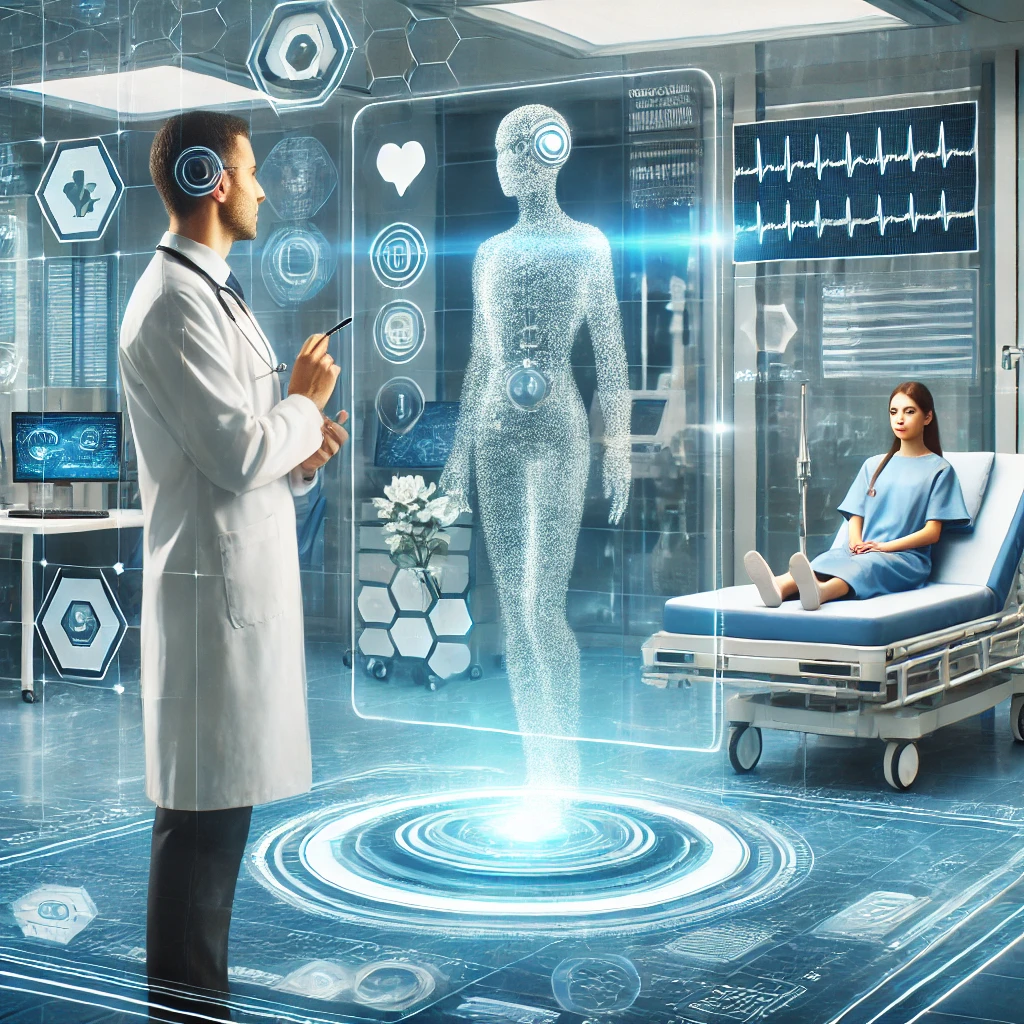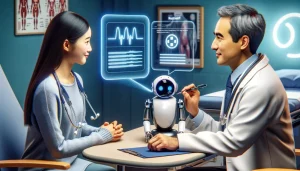
How AI-Powered Scribes Are Revolutionizing Medical Note-Taking

Transforming Healthcare Documentation: How AI-Powered Scribes Are Revolutionizing Medical Note-Taking
The healthcare industry has always been on the cutting edge of technology, leveraging advancements to improve patient care, streamline operations, and reduce costs. One of the most groundbreaking innovations in recent years is the emergence of AI-powered scribes. These intelligent systems are transforming medical note-taking, making it faster, more accurate, and less burdensome for healthcare professionals. Let’s delve into how this revolution is unfolding and its implications for the future of healthcare.
The Challenge of Traditional Medical Documentation
Medical documentation is a vital aspect of healthcare, but it is often a time-consuming and tedious process. Physicians spend hours transcribing notes, updating patient records, and ensuring compliance with regulatory standards. According to studies, doctors dedicate up to 35% of their time to administrative tasks, leaving less time for direct patient care. This workload contributes to physician burnout, errors in documentation, and inefficiencies in patient management.
Enter AI-Powered Scribes: A Game Changer
AI-powered scribes are transforming the landscape of medical documentation. These advanced systems utilize natural language processing (NLP) and machine learning algorithms to capture, analyze, and organize medical data in real time. Here’s how they’re making a difference:
- Real-Time Note-Taking: AI scribes listen to patient-physician conversations and automatically generate accurate medical notes. This eliminates the need for manual transcription.
- Improved Accuracy: By leveraging AI, errors due to misinterpretation or missed details are minimized. These systems are trained to understand medical terminology and context.
- Time Efficiency: Physicians can focus on their patients while the AI takes care of the documentation. This significantly reduces administrative time.
- Seamless Integration: Many AI-powered scribe tools integrate seamlessly with electronic health record (EHR) systems, streamlining workflows and ensuring compliance.
- Enhanced Patient Experience: With more time to focus on patient interaction, physicians can build stronger relationships and improve the overall quality of care.
Popular AI-Scribe Tools Revolutionizing Healthcare
Several AI-powered scribe solutions are already making waves in the medical field. Some of the notable ones include:
- Suki AI: A voice-enabled digital assistant that simplifies clinical documentation.
- Nuance DAX (Dragon Ambient eXperience): An AI-powered ambient clinical intelligence solution that captures patient-physician interactions and creates detailed medical notes.
- Healthscribe by AWS: A service that combines machine learning and AI to automate clinical documentation.
These tools are designed to adapt to various specialties and are constantly evolving to meet the unique needs of healthcare providers.
Challenges and Considerations
While the benefits of AI-powered scribes are immense, they are not without challenges. Key considerations include:
- Data Privacy and Security: Handling sensitive patient information requires robust security measures to prevent breaches.
- Accuracy in Complex Cases: While AI is highly effective, it may struggle with unusual or complex medical scenarios.
- Cost: Implementing AI solutions can be expensive, making it a barrier for smaller practices.
- Regulatory Compliance: AI tools must comply with healthcare regulations, such as HIPAA in the United States.
The Future of Medical Note-Taking
AI-powered scribes represent just the beginning of what’s possible in healthcare automation. As these technologies mature, we can expect:
- Increased Adoption: More healthcare providers will integrate AI-powered scribes into their practices as costs decrease and effectiveness improves.

- Advanced Features: Future systems may include predictive analytics, suggesting diagnoses or treatment plans based on patient history.
- Global Accessibility: AI-powered scribes can bridge the gap in healthcare accessibility, particularly in underserved regions with limited medical staff.
- Enhanced Collaboration: These tools will facilitate better collaboration between healthcare professionals by providing unified, accurate, and real-time data.
Promoting a balanced life with organic foods, healthy recipes, and medical information for better wellness.
© 2024 DailyMeidicure.com. All Rights Reserved. Content on this site is for informational purposes only.